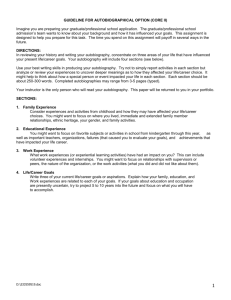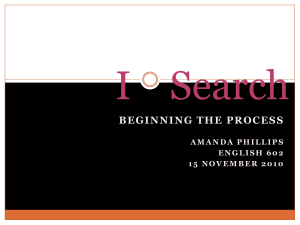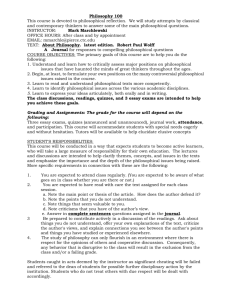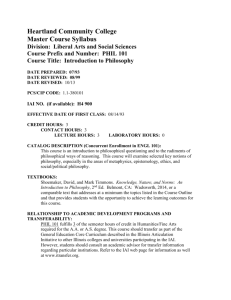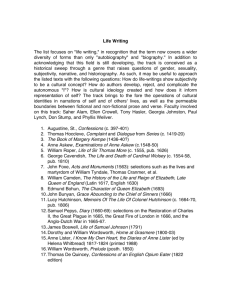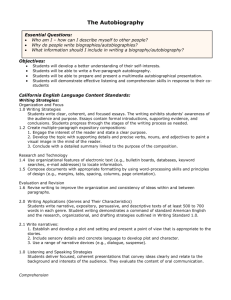Beautiful and the Sublime in Gothic and Fantastic
advertisement
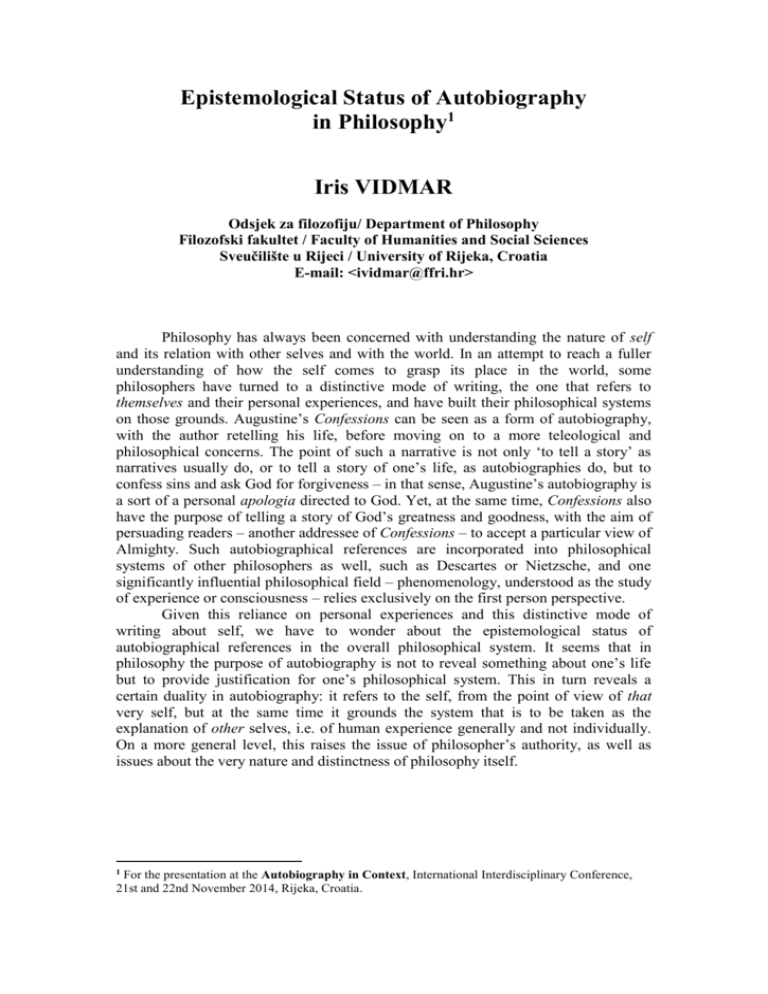
Epistemological Status of Autobiography in Philosophy1 Iris VIDMAR Odsjek za filozofiju/ Department of Philosophy Filozofski fakultet / Faculty of Humanities and Social Sciences Sveučilište u Rijeci / University of Rijeka, Croatia E-mail: <ividmar@ffri.hr> Philosophy has always been concerned with understanding the nature of self and its relation with other selves and with the world. In an attempt to reach a fuller understanding of how the self comes to grasp its place in the world, some philosophers have turned to a distinctive mode of writing, the one that refers to themselves and their personal experiences, and have built their philosophical systems on those grounds. Augustine’s Confessions can be seen as a form of autobiography, with the author retelling his life, before moving on to a more teleological and philosophical concerns. The point of such a narrative is not only ‘to tell a story’ as narratives usually do, or to tell a story of one’s life, as autobiographies do, but to confess sins and ask God for forgiveness – in that sense, Augustine’s autobiography is a sort of a personal apologia directed to God. Yet, at the same time, Confessions also have the purpose of telling a story of God’s greatness and goodness, with the aim of persuading readers – another addressee of Confessions – to accept a particular view of Almighty. Such autobiographical references are incorporated into philosophical systems of other philosophers as well, such as Descartes or Nietzsche, and one significantly influential philosophical field – phenomenology, understood as the study of experience or consciousness – relies exclusively on the first person perspective. Given this reliance on personal experiences and this distinctive mode of writing about self, we have to wonder about the epistemological status of autobiographical references in the overall philosophical system. It seems that in philosophy the purpose of autobiography is not to reveal something about one’s life but to provide justification for one’s philosophical system. This in turn reveals a certain duality in autobiography: it refers to the self, from the point of view of that very self, but at the same time it grounds the system that is to be taken as the explanation of other selves, i.e. of human experience generally and not individually. On a more general level, this raises the issue of philosopher’s authority, as well as issues about the very nature and distinctness of philosophy itself. 1 For the presentation at the Autobiography in Context, International Interdisciplinary Conference, 21st and 22nd November 2014, Rijeka, Croatia.

